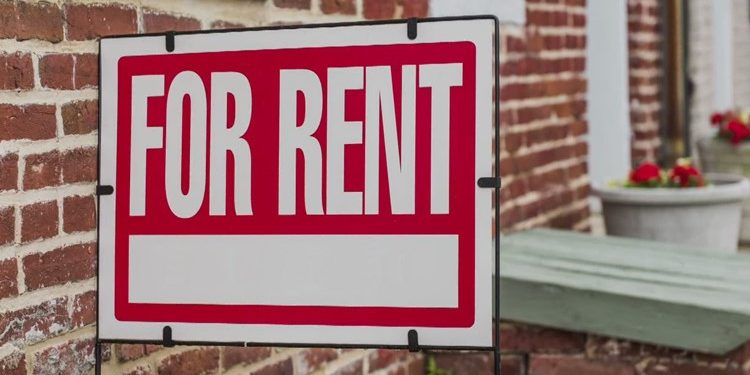Living in Virginia offers a rich tapestry of experiences, from the bustling energy of Richmond to the coastal charm of Virginia Beach. However, for many Virginians, particularly those renting their homes, a significant challenge looms: rising rent prices. This trend can put a strain on household budgets and threaten housing stability.
Understanding your rights as a tenant regarding rent increases is crucial in navigating this landscape. This comprehensive guide will delve into Virginia’s rent increase laws, empowering you to ensure fair treatment and protect yourself from unreasonable rent hikes.
Rent Control in Virginia: A Myth Explained
One common misconception is the existence of statewide rent control laws in Virginia. Unfortunately, this is not the case. Unlike cities like San Francisco or New York City with established rent control measures, Virginia operates under a different system. Landlords have more freedom in determining rent increases, but this freedom comes with limitations.
While there’s no statewide rent control, some Virginia cities are exploring local rent stabilization measures. For instance, Richmond City Council recently held discussions on proposals to introduce rent stabilization ordinances [Consider mentioning a specific date and source for this information]. Similarly, tenant advocacy groups in Norfolk and Arlington have pushed for similar measures at the local level.
Reasonable Rent Increases: The Legal Landscape
In the absence of statewide rent control, Virginia law requires landlords to act reasonably when raising rent. This means they can’t impose arbitrary or excessive increases. However, the law doesn’t provide a specific cap on rent hikes.
Landlords must also adhere to fair notice requirements. The required notice period depends on the type of lease agreement you have:
- Weekly Leases: At least 7 days written notice is required.
- Monthly Leases: 30 days written notice is required.
- Yearly Leases: While there’s no specific notice period mandated by law, it’s generally expected for landlords to wait until the lease ends and provide reasonable notice before increasing rent during a renewal period.
Protecting Yourself from Unreasonable Rent Hikes
So, how do you determine what constitutes a “reasonable” rent increase in Virginia? Here are some key factors to consider:
- Market Rates: Research average rent increases for similar properties in your area. This can be done through rental listing websites, local housing authority resources, or tenant advocacy groups.
- Condition of the Rental Unit: If your landlord hasn’t made necessary repairs or addressed maintenance issues, a significant rent increase might be considered unreasonable.
- Your Lease Agreement: Review your lease carefully. Were there any rent increase clauses outlined in the initial agreement?
Red Flags of Potentially Illegal Rent Increases
Be mindful of these red flags that could indicate an illegal rent increase:
- Increase Implemented Mid-Lease: Unless your lease agreement specifically allows for mid-term rent hikes, such increases are likely illegal.
- Retaliatory Rent Increase: If you’ve exercised your rights as a tenant, such as reporting code violations or requesting repairs, a subsequent rent increase might be retaliation, which is illegal.
- Discriminatory Rent Increase: Rent cannot be raised based on your race, religion, national origin, sex, familial status, or disability. This falls under the Fair Housing Act.
Taking Action Against Unfair Rent Increases
If you suspect your rent increase is unreasonable or illegal, you have options:
- Negotiation with Landlord: Open communication with your landlord can sometimes resolve the issue. Explain your concerns and present evidence supporting a lower increase.
- Tenant Rights Organizations: Local tenant advocacy groups can provide valuable guidance and support. They may be able to help you negotiate with your landlord or connect you with legal resources.
- Legal Aid Services: If your situation requires legal intervention, consider seeking assistance from legal aid organizations specializing in landlord-tenant law.
Additional Tips for Virginia Tenants
Here are some additional tips to navigate rent increases in Virginia:
- Maintain a Paper Trail: Keep copies of all lease agreements, rent receipts, and any communication with your landlord regarding rent increases. This documentation will be crucial if you need to take legal action.
- Document Maintenance Requests: If you request repairs from your landlord, keep a record of the request, including the date, details of the issue, and any responses you receive. This can help demonstrate a lack of upkeep that might justify a lower rent increase.
- Stay Informed: Local tenant advocacy groups and fair housing organizations often host workshops or information sessions on tenant rights and rent increases. Attending these sessions can equip you with valuable knowledge.
- Consider Rent Negotiation: Even if there’s no rent control, negotiation is always an option. If you’ve been a reliable tenant with a good payment history, your landlord might be receptive to a lower increase.
What if You Need to Move Out?
If the rent increase forces you to consider moving, explore these options:
- Explore Rental Assistance Programs: There might be federal or state-funded rental assistance programs available in your area. These programs can help subsidize rent payments for low-income households.
- Research Move-In Specials: Many rental properties offer move-in specials like waived application fees or free rent for the first month. Look for such deals to ease the financial burden of relocating.
Conclusion
While Virginia doesn’t have rent control, understanding the legal landscape and your rights as a tenant empowers you to navigate rent increases effectively. By utilizing the resources and strategies outlined above, you can ensure fair treatment and protect yourself from unreasonable rent hikes. Remember, knowledge is your best defense against excessive rent burdens.
Disclaimer: This blog post is intended for informational purposes only and should not be construed as legal advice. Always consult with an attorney specializing in landlord-tenant law for specific legal guidance regarding your situation.










